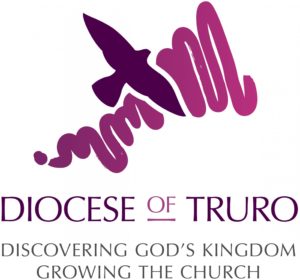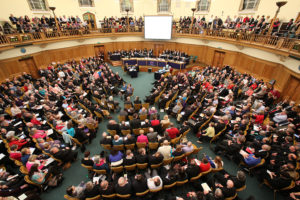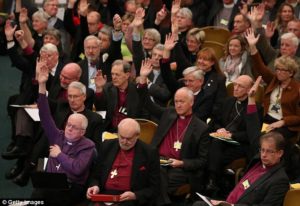 Many of the readers of SurvivingChurch will know of the story of Lizzie Lowe. This 14-year-old devout Christian teenager committed suicide over three years ago in Manchester. At her inquest it transpired that she was suffering from a deep conflict over her sexual identity. She believed that she was a lesbian but could not square this with her faith or share it with her parents. They were also devout Christians. What followed was a profound soul-searching by the congregation of St James Didsbury where she was a member. With the help of the organisation OneBodyOneFaith, the church has released a video in two parts for general release. https://www.youtube.com/watch?v=G51jf2sGts8&t=5s This tells Lizzie’s story and the outcome after her death. The well-known Scottish hymn writer and lecturer, John Bell, was also caught up in the story. He interviews the Vicar Nick Bundock about the events of Lizzie’s death. Nick then in the second video interviews John himself about his story of coming out as gay after he listened to a broadcast by Nick on Lizzie’s tragic death.
Many of the readers of SurvivingChurch will know of the story of Lizzie Lowe. This 14-year-old devout Christian teenager committed suicide over three years ago in Manchester. At her inquest it transpired that she was suffering from a deep conflict over her sexual identity. She believed that she was a lesbian but could not square this with her faith or share it with her parents. They were also devout Christians. What followed was a profound soul-searching by the congregation of St James Didsbury where she was a member. With the help of the organisation OneBodyOneFaith, the church has released a video in two parts for general release. https://www.youtube.com/watch?v=G51jf2sGts8&t=5s This tells Lizzie’s story and the outcome after her death. The well-known Scottish hymn writer and lecturer, John Bell, was also caught up in the story. He interviews the Vicar Nick Bundock about the events of Lizzie’s death. Nick then in the second video interviews John himself about his story of coming out as gay after he listened to a broadcast by Nick on Lizzie’s tragic death.
This blog post is not going to tackle the vexed question about the incompatibility of the gay identity and conservative Christian teaching. No doubt Lizzie had picked up negative comments from somewhere in her church about the evils of a gay life-style. But according to Nick, the Vicar, the subject had been rarely raised within the congregation. He, like possibly a majority of Anglican clergy, preferred not to raise the issue on the grounds that it was too divisive. Thus, there was almost an environment of secrecy around the topic and on the issues of sexuality in general. Lizzie’s death forced the church to confront these attitudes very forcibly.
The three years since Lizzie’s death and the inquest that followed it have resulted in an enormous amount of soul-searching by the entire congregation. This is spoken about in the first of the two videos which I hope my readers will watch. The end result of this process was that the Vicar and his congregation decided they needed to make the church a place of welcome for sexual minorities and others who, in various ways, found themselves effectively excluded by other churches. The fact that they were becoming a church which sought to include everyone meant that some members felt they had no option but to leave. The old boundaries of certainty were being, in their eyes, eroded. Nick spoke of the way that although some had left, others had arrived no doubt attracted this policy of inclusion. The congregation officially adopted the statement of Inclusive Church which seeks to welcome all. These newcomers numbered not only members of the LGBT community but also individuals with learning difficulties and members of racial minorities. Lizzie’s death had caused a revolution in attitudes as well as a transformation in the entire congregation. We can compare this with the revolution that I recently wrote about at the Kentucky Baptist Church of Immanuel.
The story of the legacy of Lizzie’s tragic death does not end there since the church’s decision to be inclusive has attracted the attention of other congregations across the UK and abroad. The point which I feel needs flagging up and is of relevance to our own concerns is the issue of secrecy. These are the aspects of church life that are never discussed because there is a conspiracy of silence around them. Sexuality is certainly one area and few people will find it comfortable to discuss their sexuality even when, by doing so, they can help others face up to this area of identity in themselves. Embarrassment and awkwardness will be quite difficult to manage. Mainstream denominational churches have little appetite for provoking such discomfort among their members. But there is another area of vulnerability which, alongside sexuality, is of concern to every single person but is seldom discussed or opened up. This is the topic of power and especially the dynamics of power within a congregation. Because everyone is in some way caught up in the power dynamics of a congregation it is almost impossible to discuss it with objectivity. As with a discussion on sexuality, power is a threatening topic and thus has to be avoided at all costs. Few people have the energy to challenge abuses of power even when they are a major cause of unhappiness in a congregation. Secrets sometimes have to be confronted and dealt with.
Nick Bundock spoke about the opening-up and the new freedom to discuss sensitive issues that was taking place since they had become an inclusive church. They were now free to welcome not just minority groups but also minority opinions. They had in other words shifted from being a church that pretended to hold a single perspective on teaching and moral guidance to a church which embraced diversity and openness. From the perspective of this blog it would mean that they could enter the still more vulnerable area of understanding power in the congregation – the way it is used and the way that it is experienced.
The tragic death of a teenage girl who, because of secrecy and misunderstanding believed she was in some way damned, may have helped to begin a small revolution in many churches. It is not just that the vitriolic homophobic rhetoric across many conservative churches may be blunted by Lizzie’s story, but also that some churches will follow Nick Bundock’s church and create for themselves a new openness, inclusivity and a readiness to talk about hitherto closed topics. Those who approach such churches will discover that there is in these churches a ministry of welcome that is one of good news. The good news is that God accepts and welcomes all humanity. He does not reject people because they are different or do not fit the stereotype of respectability. Our good news is that all are welcome to be part of the feast of the kingdom of God. Joining in that feast we find that we are growing in love, tolerance and openness.








